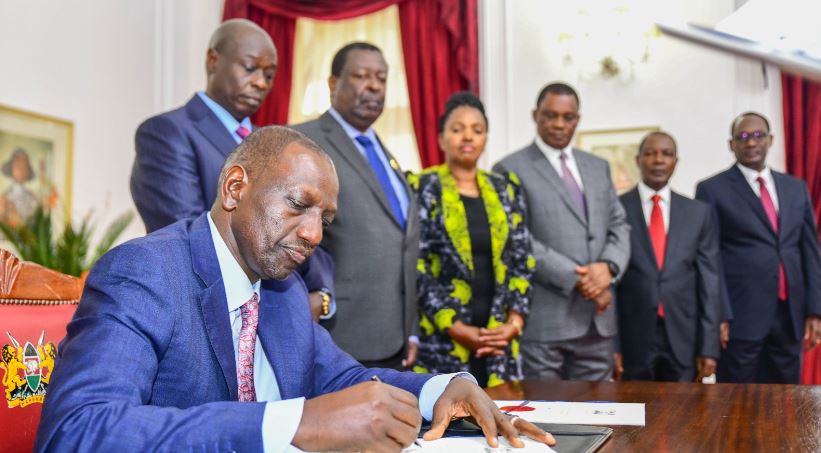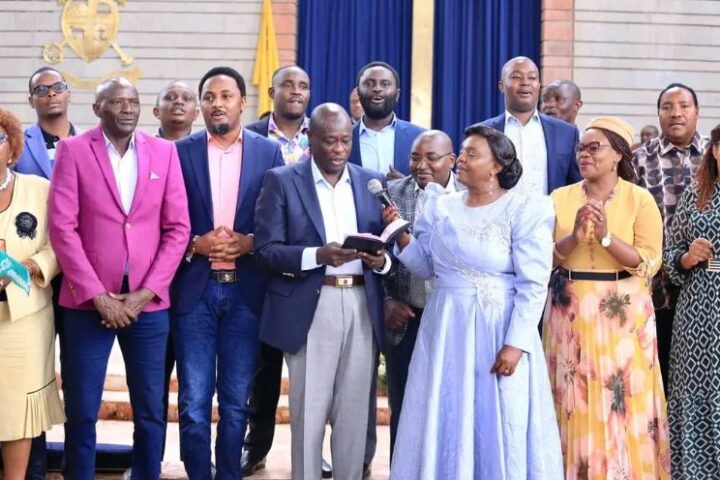 The National Assembly Finance and National Planning Committee has amended the Finance Bill 2024, intending to remove several tax proposals.
The National Assembly Finance and National Planning Committee has amended the Finance Bill 2024, intending to remove several tax proposals.
These amendments eliminate contentious clauses, such as proposed taxes on motor vehicles, mobile money transfers, internet services, the eco levy tax, and excise duty on bread and oil.
These revisions were prompted by public feedback, which vehemently opposed the controversial clauses, denouncing them as punitive.
The committee acknowledged that the motor vehicle tax, in particular, had been widely criticized as inappropriate, prompting the government to explore alternatives like the road maintenance tax.
After a two-week public consultation period, the committee is poised to present its report to Parliament on Tuesday, June 18.
List of the changes made to the Finance Bill 2024:
- The Finance Bill 2024 has dropped the proposed 16 per cent tax on bread.
- Excise duty on vegetable oil has been removed.
- Concerns about the transfer of mobile services prompted the decision not to increase transaction fees for mobile phone transfers; the status quo remains.
- The proposal includes making statutory deductions such as Housing Levy and SHIF tax deductible, thereby reducing the amount subjected to PAYE and increasing disposable income.
- The eco levy will only apply to imported finished products; locally manufactured items, including diapers and sanitary towels, will not be subject to the eco-levy.
- The VAT threshold will increase from Kes. 5 million to Kes. 8 million, meaning SMEs with a turnover of less than Kes. 8 million will not need to register for VAT.
- Small businesses with turnover of less than Kes. 1 million should be exempted from eTIMS.
- Excise duty will only be proposed on imported eggs, onions, and potatoes, making locally produced items more marketable.
- In the fight against illicit brews, excise duty will be based on alcohol content rather than volume, resulting in higher duties for those producing high-alcohol-content beverages.
- To support pension contributions, the Finance Bill proposes increasing the allowable amount for taxable contributions from Kes. 20,000 to Kes. 30,000 monthly.
- Funding has been allocated in the Finance Bill to hire all 46,000 JSS intern teachers on permanent and pensionable terms, in addition to recruiting another 20,000 teachers.
- The proposal to amend motor vehicle tax through the Income Tax Act has been dropped; pegging it on insurance was deemed potentially detrimental to the insurance business.
- VAT on the transportation of sugarcane from farms to milling factories will be removed.
North Rift Politicians Defend Finance Bill 2024
Meanwhile, leaders from the North Rift Region have come out in defense of the Finance Bill 2024, asserting that it is crucial for generating revenue to support vital public services.
Despite concerns that the bill’s tax proposals could burden ordinary citizens, these lawmakers argue that it is necessary for ensuring Kenya’s long-term economic sustainability.
“There is a lot of misconception about Finance Bill 2024. I want to assure the country that it is for the good of the nation. We have to raise revenue so that we can run the affairs of this country,” affirmed Mosop MP Abraham Kirwa.
He emphasized that the recently unveiled Budget Policy Statement for 2024-2025 underscored the necessity of increasing revenue.
“We just read the budget of Ksh.3.92 Trillion. This is a lot of money we are anticipating to spend. To raise this money we have to pass this Finance bill so that we can get money to run the country’s affairs,” Kirwa stressed.
Supporting Kirwa’s stance, Aldai Legislator Maryanne Kitany acknowledged the economic challenges but emphasized the bill’s importance in enabling the government to fulfill its economic objectives.
“Even though times are tough, we must sustain ourselves. A self-sufficient nation is a nation that values itself,” noted Kitany.
Felix Koskei, Head of Public Service, echoed the MPs’ sentiments, assuring the public that taxes collected under the Finance Bill 2024 would be utilized transparently and efficiently.
“Once it (the Finance Bill 2024) is passed, the government will ensure that the taxes collected as a result will not be misappropriated or lost through corruption. We have agreed and the President has directed that we are not going to tolerate corruption in Kenya,” Koskei affirmed.








